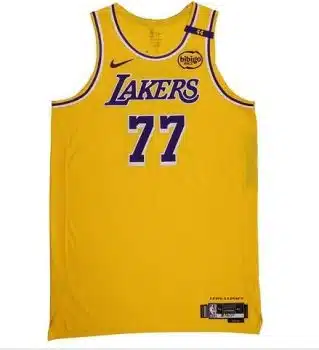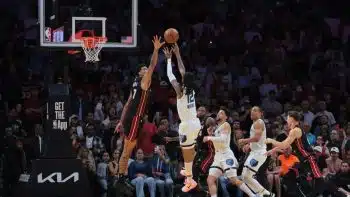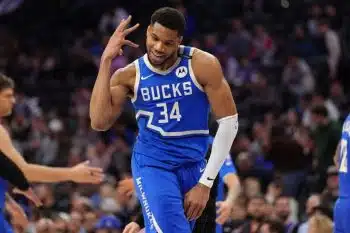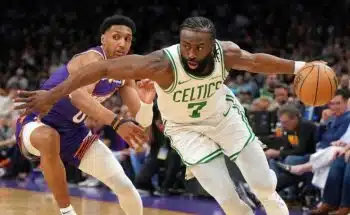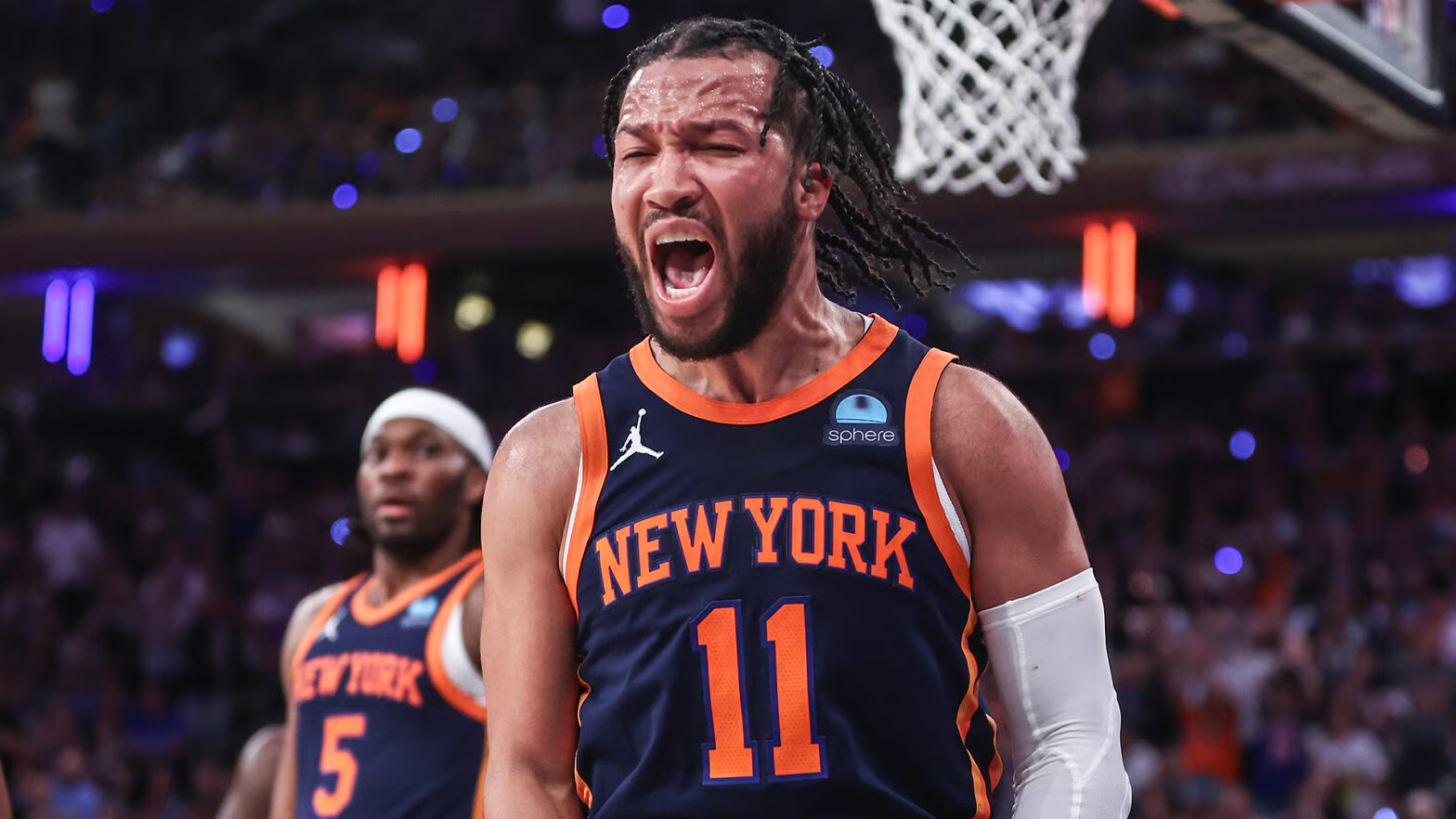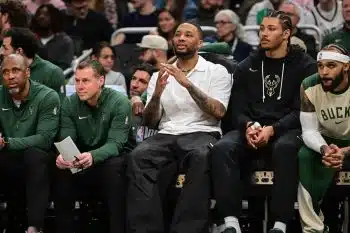NBA
The X-Factors: Houston
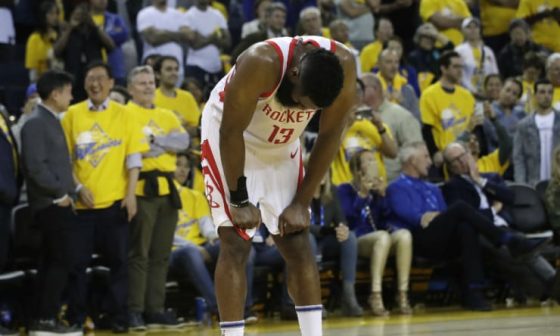
The world is on fire.
And, frankly, the news of pending basketball hardly seems important in the slightest. The planet-wide pandemic and sweeping protests have turned everybody’s day-to-day routines on their head – but, obviously, for one group, it has done so in awful and disproportionate ways.
If you can donate, consider doing so. If you can’t donate, educate yourself. Even if you donate, continue to read, learn and listen.
Or try this: If you finish this article and come away having learned something — from a new three-point percentage to an underrated aspect — donate something of your own: Time, supplies, a tough conversation — whatever. Consider it a trade, do whatever it takes. Make a difference, even if it’s a small one.
The NBA is nearly back — how exactly (and with what measure of success) is yet to be seen, but there is a plan and structure worth building from. For teams on the bubble, getting into the play-in tournament will be the most and immediately pressing issue. But the other bracketed, locked-in franchises, jockeying for home-court advantage, must get serious and knock off that rust. Out westward, the stakes are even higher — and for those hungry at a postseason without the Warriors, this is a key moment in franchise history.
The Houston Rockets, now rostering two former MVPs and an insatiable drive to launch from downtown, are one of those teams. They’re one of the most accomplished franchises of the last decade, but Houston has nothing to show for it beyond playoff losses to Golden State in four of the last five years — and twice in the Conference Finals.
Heading into the home stretch, Houston is perched rather precariously — tied with the Dallas Mavericks for sixth place and just 2.5 games back of third. Needless to say, the difference between hosting the Oklahoma City Thunder or traveling away to face the Los Angeles Clippers is practically a deal-breaker for any true championship aspirations. So in order to make The Russell Westbrook Experiment a worthwhile endeavor, the Rockets as a whole must work as well.
Did you know that Houston currently ranks first in three-pointers made (15.4) and three-pointers attempted (44.4)? Yeah, probably. You already also knew that it’s been this way since 2015-16 when the Warriors were outpacing people — but, even then, the Rockets were still in second. Yet, over those four consecutive seasons as leaders in the three-point makes and attempts category, Houston never finished in the top ten for percentage.
Naturally, that checks out. The more you launch from deep, the less likely you are to be efficient — unless your name is Stephen Curry, but whenever.
From 2016-19, the Rockets finished 15th, 14th and 12th in three-point percentage, slowly creeping up toward that top ten range. This year? Well, they’re down to 23rd on just 34.8 percent.
By simple sorting measurements, you might be fooled into thinking that Houston ruled from behind the arc. But, really, that title belongs to the Dallas Mavericks this year. As the only franchise to live in the same zip code as the Rockets, the other Texas-based team knocked down 15.3 makes on 41.3 attempts for a much more palatable 36.9 conversion clip. And it’s a number that pushes Dallas into eighth for three-point percentage, an achievement, again, that Houston hasn’t reached since embracing that team-wide philosophy.
For a franchise that went all-in on the arc, 23rd-best in percentage is not a championship-winning formula.
Perhaps it was swapping Chris Paul — who shot 38, 35.8 and 36.2 percent from deep over his three years with Houston — for Westbrook, a future Hall of Famer that’s never boasted touch from long range. In fact, Westbrook is shooting a near career-low 25.4 percent on 3.8 attempts per game, only bested by a sophomore year effort of 22.1.
Harden is doing his best to make up for the difference, however, and he’s the current league-leader in field goal attempts, three-point makes, three-point attempts, free throws and free throw attempts. In a world without Curry, Harden hasn’t missed an opportunity to feast and he’ll finish with his third consecutive scoring title at 34.1 points per game — somehow both nearly four full points ahead of the second-placed Bradley Beal and also almost two fewer than he tallied each contest last year.
Marginally, though, Harden is down to 35.2 percent from three-point range after making 36.8 during his runner-up MVP campaign of 2018-19. It’s not a stat-buster for Houston, but it does lump onto the final number.
But the decline goes beyond the stars: Danuel House, a G League-made revelation over his 39 games with Houston last year, has gone from 41.6 to 36.3 percent — or, in other words, he’s made the same amount but with an extra miss per game. The unflappable Eric Gordon has dropped from 36 to 31.9, while Gerald Green (2.1 makes in 2018-19) has missed the entire season after breaking his foot during the preseason.
And although Austin Rivers (32.1 to 35.8), Gary Clark (29.7 to 35.3) and the addition of Robert Covington (35.7 over 14 games) have helped — they’re trending downward as a whole. When Houston made 37 percent or better from deep in 2019-20, they managed a ridiculous 23-1 record. Living and dying by the three-point line has its risks, though, and the Rockets struggled to just 14-18 when hitting under 34 percent. This is not a Houston-only problem, of course — but when it’s the offensive focus outside of get-James-Harden-the-ball, it quickly becomes a negative trait, not a positive one.
And if their sweeping philosophy is no longer the game-changer it once was — what is left? Confident as ever, the Rockets dealt their alley-oop, rim-protecting double-double machine (albeit an injured one) in order to play 34-year-old P.J. Tucker (6-foot-5, 37 percent from three-point range) even more at center.
It’s a bold strategy and one that hasn’t elevated the Rockets just yet.
With a healthy Clint Capela, Houston went 22-17. And when he scored his season average of 14 points or more, the Rockets only lost five times. Since Robert Covington was swapped in for Capela, they notched an 8-6 record and lost four of their last five heading into the pandemic stoppage. A small sample size, sure, but the sacrifice of Capela for Tucker’s ability to stretch the floor and the wing defense of Covington left the Rockets with as many weaknesses as before.
Moving Capela — 25, entering his prime and under contract until 2022-23 — might be the type of short-sighted, win-now move that Houston will rue for years to come.
Depending on how the conference standings shake out, they’ll likely have a date with the Jazz, Nuggets or Clippers in the postseason — all of whom boast big-game centers. Even with their former big man, the Rockets struggled to slow the likes of Rudy Gobert, Nikola Jokic and Montrezl Harrell throughout 2019-20. During a late January game in Denver, Jokic dropped 24 points, 12 rebounds and 11 assists on 9-for-18 shooting in a seven-point win — and Capela actually played 28 minutes in that one.
Later on, in a Mar. 5 post-trade loss to the Clippers, both Ivica Zubac (17 points, 12 rebounds) and Harrell (19, 10) posted double-doubles in only 22 minutes.
In the end, if the Rockets are so willing to concede the paint to their opponents, they’ve really got to make their three-pointers at a more consistent rate — period.
And if they’re banking on Westbrook suddenly improving from deep, that’d be unwise too. The superstar’s best-ever mark from deep is 34.3 percent, way back in 2016-17. Again, that’s a mark that Paul easily surpassed in Houston three times in a row and one that would stand as a career-low for Harden.
The Paul contract was a salary cap killer, make no mistake — but at least he fit the team-wide makeup. Aside from forcing a square peg in a round hole, it puts most of the pressure on Harden’s shoulders to not only be the franchise star, but the game-changing X-Factor as well.
When Harden is cooking, there are few better shows in league history. But without him performing absolute magic over a seven-game series, the Rockets have little chance of even winning their first-round matchup, regardless of home-court advantage or the opposing team. By putting all their eggs in the Harden-Westbrook and small ball basket, they’ve made their once-great three-point advantage noticeably worse and surrendered another piece of the floor entirely.
It’s not good news — but at least they’ve still got James Harden.
